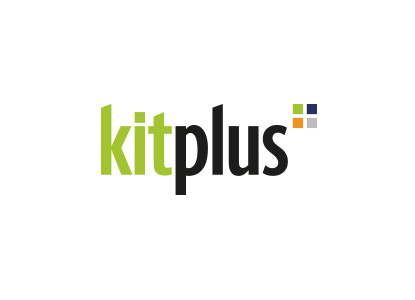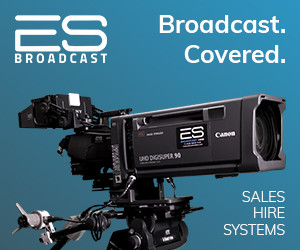Selling your business Part 1 of 3
Author: Dennis Lennie
Published 1st July 2008
In this first of three articles on selling a business, Peter Savage explains why it is not easy to determine the true value of a business
The industry buzzed this month with news that Simon Meikle at Mitcorp was selling out to fellow reseller CVP. Amounts, money valuations, multiples were all bandied around so I thought it a good time to run over some rudimentary rules in the world of mergers and acquisitions.
When it comes to valuing companies, several standard terms are used. People talk about “a multiple of”, “super profit”, “how many times the PE”, and “the real net worth of a company”. It’s double-dutch to many so here’s an explanation. And, as far as giving guidance is concerned, please, please remember … these are only my views.
One golden rule
First and foremost, as the title states, a business is only worth what someone will pay for it – and this really is the golden rule. People pay more or less for reasons that may be strategic, political and/or even emotional. So the term valuation is a misnomer because if you can’t find anyone to buy your business, it is only worth what you can take out of it.
This then poses questions about how you should manage your business. Should you run it as a lifestyle business – where you set it up to suit you, making it less attractive potentially to others – or do you gear it for sale – turning it into a business others would want to run, perhaps making it less attractive to you? I feel another article coming on but, for now, I’ll stick to explaining the methods of calculation.
The super profit calculation
Most people in today’s market value small businesses (essentially companies which are not quoted on the stock market) at an average of five times their super profit. Now what the hell does that mean? Super profit is a measure of the business after taking out the non-transferable costs. A non-transferable cost might be the cost of the person selling the business – if that person was both not intending to stay with it after the sale and was not key to its success and needing to be replaced. So, for example, if the owner of a business making £400,000 a year before tax wanted to sell and walk away from it, and had been taking, say, £100,000 a year from it in salary, the business would be measured at five times £500,000 or £2.5 million.
That’s a relatively easy calculation. It gets more complicated if that same business were to be sold by a director who is needed to run it, or who needs to be replaced after the sale, and who had been taking dividends after corporation tax to supplement an artificially low salary. In that situation, the real cost of the salary – £100,000 – would have to be subtracted from the pre-tax profit of £400,000 before being multiplied by five. So this business would only be worth £1.5 million, even though the pre-tax profit is the same.
The problem with a super profit calculation is that it can sometimes price a business at below its balance sheet worth. Take, for instance, a company making £150,000 a year super profit on a balance sheet of £1 million. The valuation using the calculation above comes in at £750,000 which means that the company should be bought ata discount to its asset value.
However, if the company were to be sold on the basis of the value of its assets, it could well be broken up for more than the discounted value. What is the value of this company? The answer is probably the value of the assets and probably three times the profit amount, paid over three years subject to performance. Confused yet?
P/E ratios
The last method of calculation relates to P/E ratios. You’ll have read of people who say something like: “I value my company at 10 times P/E”. But what does this mean? P/E, or price to earnings ratio, is a stock market term for the amount of money a share returns compared to its price on the market. So, for example, if a share costs you £20 and you receive £5 a year in dividends, the PE ratio is four. It is strange, I know, but the lower the P/E, the less sought after a company will be.
For a leasing company (my industry) the average P/E ratio is eight. So a valuation, if you were to sell, could be eight times profit after tax (P/Es are taken after tax).
The rule for floated companies is supposedly that if you can sell to a quoted company at half their P/E, and still make the money you want out of the sale, it should work for both sides. With, for example, Avesco Plc which has a current P/E of 14.2: if your business fitted nicely into their stable and you were happy to take around seven times your sale price, then the deal fits economically for both sides as you get your return and Avesco has bought your profit at one half of their P/E ratio. Even more confused?
Should you take the money and run?
Anyone selling a business has to decide whether to take all the proceeds immediately in cash, or take some over time and/or some in shares.
In my view, the ultimate deal is cash with no tie in. In this situation the price might be discounted: for example, you might be offered four times the super profit but be free to go immediately.
If you take some over time – known as an earn-out – be sure that you know the method of evaluation of the end of the earn-out as many people have discovered that their multiple was not the same as that of the now incumbent majority shareholder. In other words, they were sold short.
And if you take some in shares … well, shares can go up or down. How do you fix the price? Do you gamble this part of the money? Can you work on some type of value guarantee? These are questions you will only be able to answer when the situation arises and, I recommend, with specialist guidance.
More questions than answers …
As you can see, this article has posed more questions than answers. So next time I will look, on a no-names basis, at valuing some companies and then, in the third article, follow up with the perfect plan for selling a business. Meanwhile, if you’d like to know more, please get in touch.
The series continues next month. If you have missed previous articles, or if you would like to comment on them by contributing to our blog, see: www.azule.co.uk/articles.asp





























